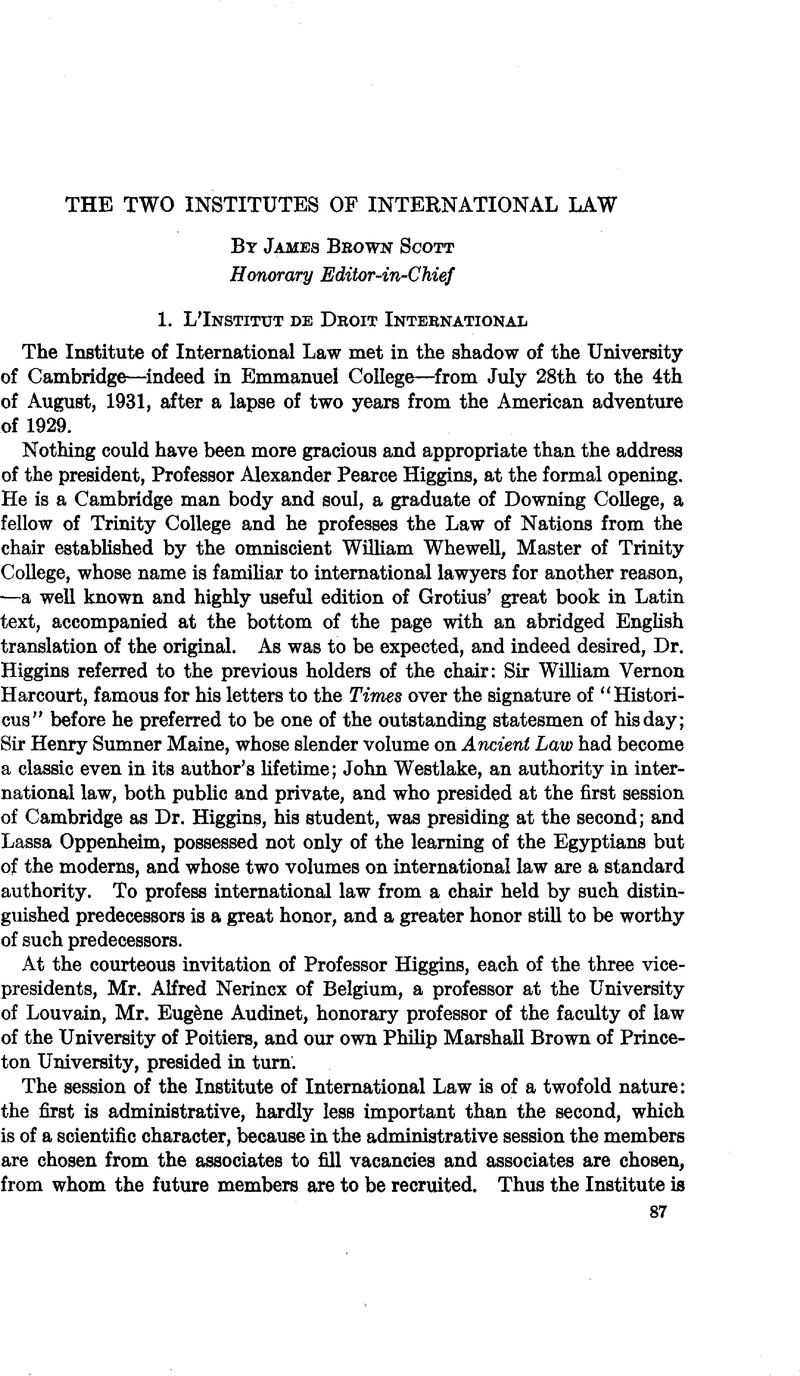Article contents
The Two Institutes of International Law
Published online by Cambridge University Press: 12 April 2017
Abstract

- Type
- Research Article
- Information
- Copyright
- Copyright © American Society of International Law 1932
References
1 Francisci de, Vitoria, De Indis et De jure belli, edited by Ernest, Nys, published by the Carnegie Institution of Washington, Washington, 1917, pp. 160, 161 Google Scholar.
2 “The contracting States agree that from the going into effect of the present treaty there shall be no distinction based on sex in their law and practice relating to nationality.” (Proposal of Miss Alice Paul and Miss Doris Stevens.)
3 Art. 1. It is the duty of every State to recognize the equal right of every individual to life, liberty and property, and to accord to all on its territory full and entire protection of this right, without distinction of nationality, sex, race, language or religion.
Art. 4. No cause based directly or indirectly on the difference of sex, race, language or religion shall authorize States to refuse to any of their nationals private and public rights, notably admission to institutions of public instruction, and the exercise of various economic activities, professions and industries.
Art. 5. The foregoing equality must not be nominal but effective. It excludes all direct or indirect discrimination.
- 2
- Cited by


